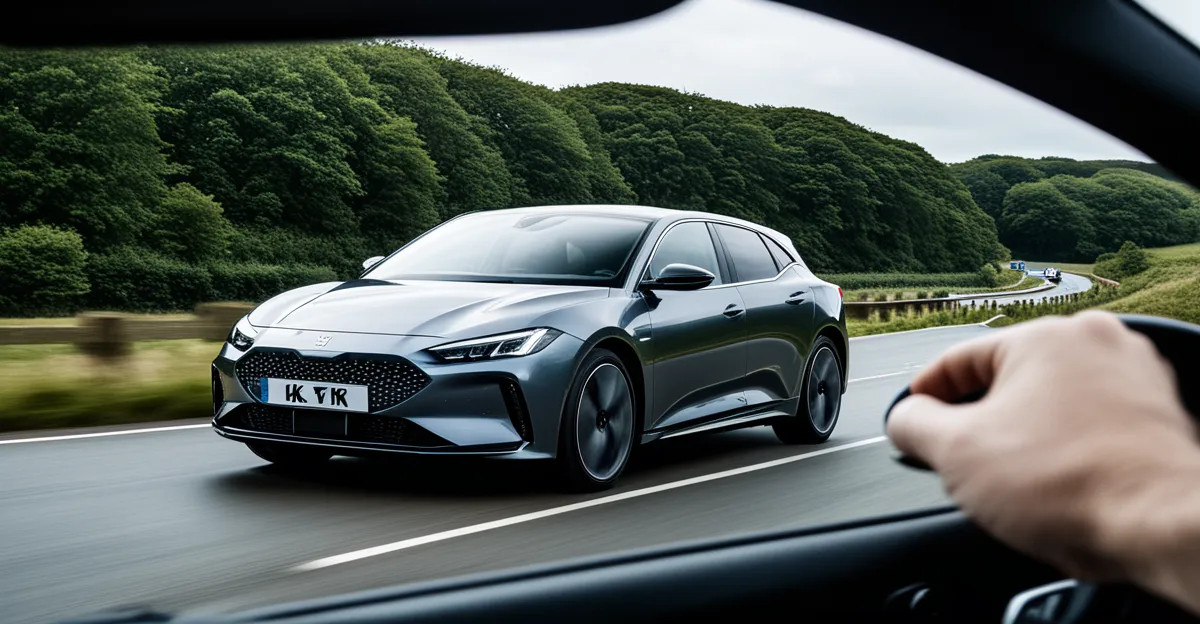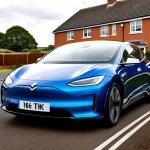Emerging Automotive Technologies in the UK
The UK is at the forefront of automotive innovation, driving significant progress in electric vehicles (EVs), autonomous systems, and connected car technologies. The surge in electric vehicles is supported by a rapidly expanding charging infrastructure, which is crucial for widespread adoption. This infrastructure includes fast chargers across urban and rural areas, enhancing convenience and reducing range anxiety for EV users.
Autonomous driving advancements in the UK emphasize safety and efficiency. Trials are actively refining sensor technologies, machine learning algorithms, and regulatory frameworks to enable self-driving cars on public roads. These developments promise to transform mobility with reduced accidents and improved traffic flow.
In the same genre : How Will the Adoption of Electric Vehicles Transform the UK’s Auto Industry?
Connected and smart car developments are also pivotal in shaping the future of vehicles in the UK. Cars increasingly communicate with each other and with infrastructure to optimize routes and enhance driver experience. Innovations in vehicle-to-everything (V2X) technology support smarter urban mobility, integrating vehicles into broader transport ecosystems.
Together, these trends highlight the future of vehicles in the UK through a blend of sustainability, automation, and connectivity, fostering a more intelligent and environmentally conscious automotive landscape.
Also read : What role does 5G technology play in the future of UK automotive connectivity?
Economic and Workforce Impacts of Automotive Technology
Automotive technology job market UK is undergoing a significant transformation as emerging innovations reshape employment patterns. The rise of electric vehicles and autonomous systems shifts demand away from traditional manufacturing roles toward new skill sets in software, electronics, and data analysis. This shift requires extensive workforce retraining and education to ensure a smooth transition.
UK economic impact vehicles is notable as the automotive sector contributes billions to GDP, supported by expanding EV production and smart mobility services. New business opportunities are emerging, especially in battery manufacturing, software development, and charging infrastructure installation, fostering economic growth.
Industry shifts are also evident in supply chains adapting to more sustainable components and digitalized processes. Traditional parts are being replaced by high-tech modules, driving a reevaluation of sourcing strategies. These changes stimulate innovation but also introduce challenges in adapting existing facilities and labor forces to evolving demands.
Overall, the UK’s automotive technology job market is evolving to meet future needs, fostering economic resilience through new roles and industries centered on advanced automotive technologies.
Emerging Automotive Technologies in the UK
The UK continues to lead in automotive innovation UK, especially in the expansion of electric vehicles and charging infrastructure. Fast-charging stations are being deployed nationwide, addressing a critical barrier to EV adoption: charging convenience. This infrastructure development makes longer journeys feasible and supports broader acceptance of green vehicles.
In autonomous driving advancements, the UK is focused on enhancing sensor accuracy, AI-driven decision-making, and regulatory readiness. Active trials are refining self-driving technology to improve safety and reliability on public roads. This hands-on testing phase ensures vehicles can react appropriately to complex urban and highway scenarios, paving the way for future autonomous fleets.
Furthermore, connected and smart car developments form a core pillar of UK auto tech trends. Vehicles increasingly participate in vehicle-to-everything (V2X) communication, exchanging real-time data with traffic systems and other cars. This technology promises smoother traffic flow, fewer accidents, and enriched driver experiences, all shaping the future of vehicles UK envisions.
Together, these technologies depict a future where sustainability, automation, and connectivity converge, driving the UK’s status as a hub for pioneering automotive technology.
Environmental Sustainability and Automotive Innovation
Environmental sustainability is a central focus of green automotive technology UK, underpinning efforts to meet ambitious UK climate goals transportation. A primary benefit is the significant reduction in emissions and air pollution compared to traditional combustion engines. Electric vehicles (EVs) produce zero tailpipe emissions, directly improving air quality in urban centres and contributing to public health.
EV sustainability extends beyond operation. The lifecycle environmental effects include sourcing materials responsibly, like lithium for batteries, and improving recycling technologies to reduce waste and resource depletion. Addressing these areas ensures that the environmental advantages of EVs are maximized throughout their entire usage.
Supporting the UK’s net zero ambitions, automotive innovation focuses on energy-efficient drivetrains and expanding renewable energy integration into charging infrastructure. This synergy accelerates progress toward national carbon reduction targets.
In summary, green automotive technology UK is integral to achieving cleaner transportation systems. Reducing emissions, promoting renewable energy, and enhancing EV sustainability collectively drive the future of vehicles UK towards a more environmentally responsible path.
Emerging Automotive Technologies in the UK
The UK’s drive in automotive innovation UK is marked by rapid advancements in electric vehicles (EVs), autonomous driving, and connected car technologies. The expanding electric vehicles and charging infrastructure network is essential, with increasing numbers of fast chargers strategically installed nationwide. This growth reduces range anxiety and supports widespread EV adoption, reinforcing the UK’s leadership in clean mobility.
In autonomous driving, UK initiatives are pioneering autonomous driving advancements with refined sensor technologies and AI algorithms. Active trials focus on ensuring safety and reliability on complex roadways, aligning with evolving regulations and public expectations. These efforts advance self-driving cars closer to everyday use.
Connected and smart car developments represent another vital area within UK auto tech trends. Vehicles now interact through vehicle-to-everything (V2X) communications, exchanging real-time data with traffic infrastructure and other vehicles. This connectivity optimizes traffic flows, enhances safety, and enriches driver experiences, embodying the envisioned future of vehicles UK aims to achieve.
Emerging Automotive Technologies in the UK
The landscape of automotive innovation UK is rapidly evolving, with electric vehicles and charging infrastructure at its core. The UK’s strategy prioritizes expanding fast-charging networks, which directly addresses range anxiety—a vital barrier to mass EV adoption. By positioning chargers in both cities and rural areas, the UK is creating a reliable framework that supports longer journeys and everyday practicality.
Autonomous driving advancements are characterized by sophisticated sensor systems and AI integration, ensuring vehicles can safely navigate complex environments. Continuous trials assess vehicle response in unpredictable scenarios, which is crucial for refining safety and meeting strict regulatory standards. These developments place the UK at the forefront of self-driving car technology.
Simultaneously, connected and smart car developments enhance vehicle interaction through vehicle-to-everything (V2X) communication. This technology facilitates real-time data sharing among cars and infrastructure, improving traffic flow and accident prevention. These UK auto tech trends collectively define the future of vehicles UK envisions—one marked by sustainability, automation, and connectivity, setting a benchmark for global automotive progress.
Emerging Automotive Technologies in the UK
The ongoing automotive innovation UK focuses heavily on enhancing electric vehicles and charging infrastructure, which remains pivotal in reducing dependence on fossil fuels. Expanding fast-charging networks nationwide targets the persistent challenge of range anxiety, enabling longer trips and everyday usability. This infrastructure growth aligns closely with the broader UK auto tech trends, emphasizing convenient access and integration with renewable energy sources.
In parallel, autonomous driving advancements in the UK prioritize the refinement of AI-driven sensor systems and complex decision-making software, essential for real-time safety and adaptability. Active trials involve navigating unpredictable urban and highway scenarios to meet stringent security standards set by regulators. These efforts reflect a robust commitment to placing driverless cars on public roads sooner without compromising safety.
Moreover, connected and smart car developments utilize vehicle-to-everything (V2X) communication technologies, allowing cars to exchange data instantaneously with infrastructure and other vehicles. This interaction enhances traffic management, reduces accidents, and enriches the user experience. Collectively, these technologies form the foundation of the future of vehicles UK, where sustainability, automation, and connectivity converge to redefine mobility.








